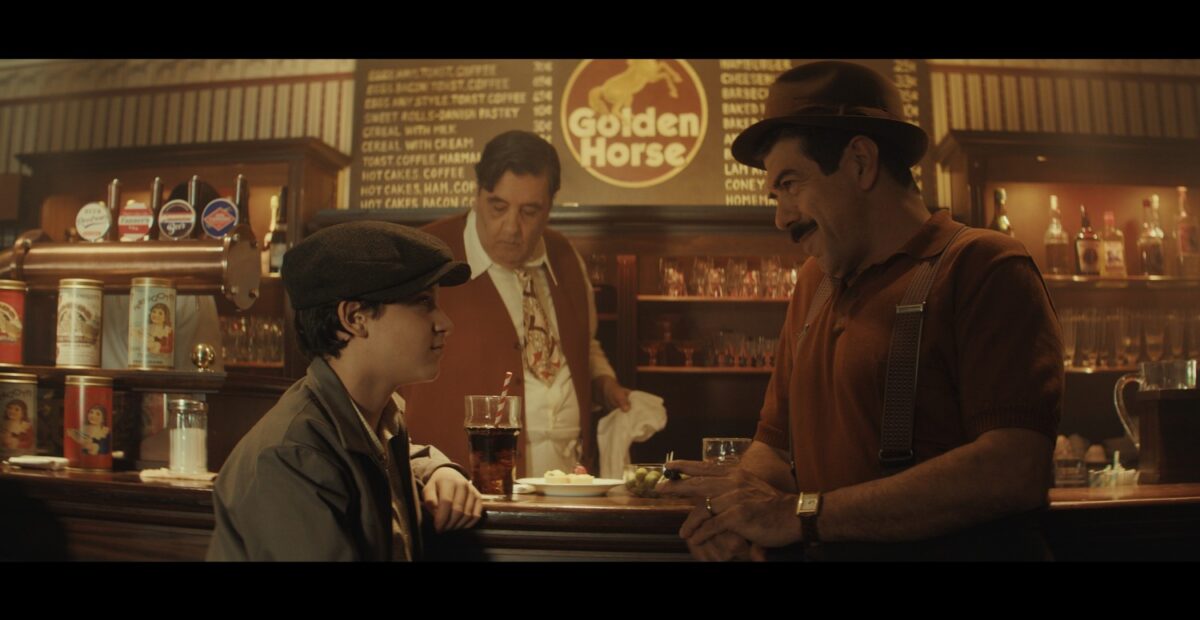
Watch
To migrate is human: thoughts on the film ‘Napoli New York’

A thoughtful reflection on the theme of migration through the film ‘Napoli New York’, set in the immediate post-war period, but capable of speaking to the present.
A film on the memory of the great Italian emigration to America, therefore valid for working on empathy, on putting oneself in the shoes of those who, today, travel towards Italy in the hope of a dignified life.
To migrate is human. History reminds us of this, and cinema does so too: when the conditions for a dignified life are denied, life itself moves elsewhere. Even Italy, a country now safe in the heart of Europe – but so close to Africa that its cry is heard every day – has been a land of great emigrations.
Nowadays, a good film entitled ‘Napoli New York’, by Gabriele Salvatores, rewinds the tape. It is about a city wounded by bombs and misery. Of children without families looking for something to eat during the day.

This story is based in the city of Naples, beautiful and sorrowful, devastated by the ordnance of the Second World War. Here, Celestina and Carmine, with no one to take care of them, wander the city’s poor alleys, exposed to the greatest dangers.
The war has just ended, and the 9-year-old, already orphaned of her parents, has lost her aunt in the rubble and seen her sister leave to America, having sold everything. For the love of a man and in the hope of a future.
Together with the second one, who is twelve years old, they abruptly find themselves on a sea voyage to America. They are welcomed, accompanied, supported, by other Italians with humble clothes and suitcases wrapped with string: emigrants, faces like theirs, suspended between fear and hope, deprived of the past and uncertain of the future. All heading for that ‘new world’ that was also the title of another powerful film on Italians who emigrated to America, directed by Emanuele Crialese, in that case at the beginning of the 20th century. From Sicily.
Celestina and Carmine land in a New York full of compatriots who have emigrated: the ‘Little Italy’ not far from the space that has become home for other transplants, uprooted by history: the Afro-Americans Celestina met in her most difficult days, momentarily left on her own amidst the indifferent, when not hostile, chaos of the ‘Big Apple’.
A city capable of ‘not serving the Italians’, set in a world where, like today, the words poor and foreigner could be synonymous. ‘You’re not a foreigner, you’re poor: if you’re rich, you’re not a foreigner anywhere,’ we hear in this film based on an old subject (which was finally never realised) by Federico Fellini and Tullio Pinelli.
A film with a great story at its centre. Marmoreal and unquestionable, statuesque, perhaps uncomfortable, but unequivocal and powerful, with its ability to silence short-sighted and selfish considerations on the phenomenon of migration. To give way to more accomplished, complete, magnanimous and humane reflections on this painful and gigantic subject. That History capable of nurturing empathy towards those who today, like us yesterday, seek peace, bread and dignity. Where it is possible.
There is hunger and war in ‘Naples New York’. Those evils that the human being, three quarters of a century later, has not yet eradicated, eliminated from his vocabulary. In this delicate dramatic comedy, there is the human escape from this insane, double evil, summed up by a phrase of Celestina’s on board the ocean liner, when they accuse her of travelling illegally: ‘Even dying of hunger is illegal’, she replies, summing up the reason for the uncomfortable, obligatory, sad journey that has befallen an infinite number of human beings over the centuries.
A mass of different languages, cultures and skin colours, whose common denominator has almost always been poverty. In the absence of a decisive antidote, one wonders upon seeing this film, what is the medicine that, at least, soothes hunger, war and forced migration? It is the attentive gaze on the other, the ability to say, looking at the vulnerability of Carmine and Celestina: ‘They have lived through the war, they will go hungry’. It is that ability to take care of them embodied by the character played by Pier Francesco Favino, who instead of coldly judging their travelling without a ticket, goes looking for them inside New York to build them a future.
A caption at the end of ‘Napoli New York’ recalls the ‘19 million Italians’ who emigrated to the United States in less than two centuries. These are words that refresh our memory and make it easier for us to put ourselves in the other’s shoes when they knock on our doors for help.






